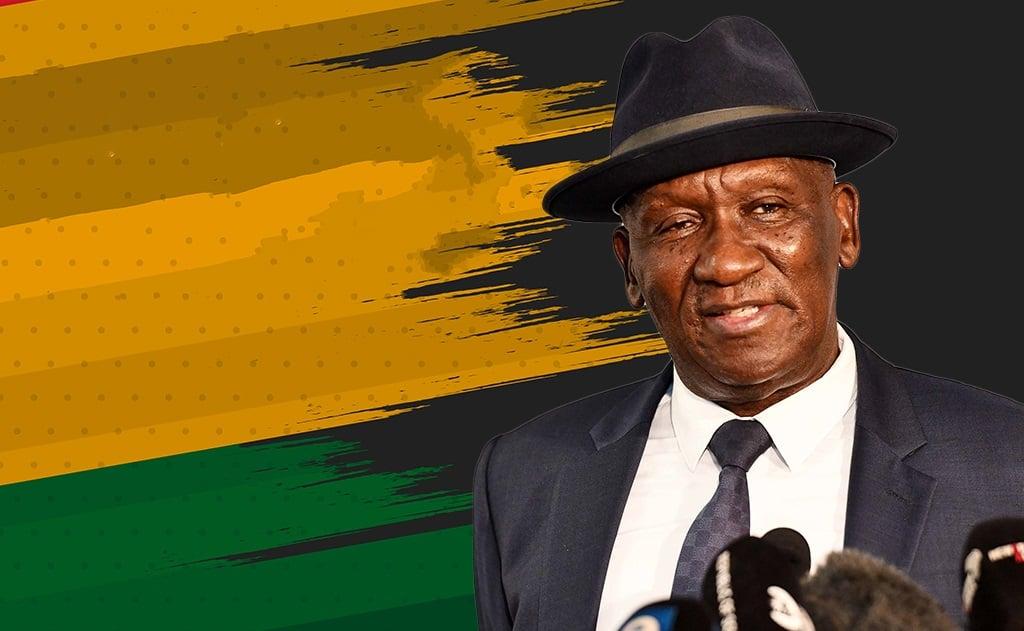Africa-Press – South-Africa. A Free State woman who lost her eye after being struck by a rubber bullet during a protest in 2019 has won R1.7 million in damages from Police Minister Bheki Cele.
The Free State High Court in Bloemfontein ruled in favour of the woman who was injured on 15 August 2019 when a protest erupted at Section T in Botshabelo.
Police officers used rubber bullets and stun grenades to disperse protesters.
Tinny Geneva Nkoane, a then 17-year-old pupil dressed in her school uniform, was walking to the tuckshop in the same street as her home to buy bread before going to school.
She said she was about 1o metres away from her home when she saw a group of people running towards her.
Nkoane said she continued walking because she didn’t know why they were running. She then heard a gunshot and immediately fell to the ground. Her eyes burned and blood started streaming down her face.
Four policemen stood next to her for about 10 minutes without assisting her. She cried and asked for help, but they walked away, got into their Nyala and drove off, reads the judgment.
Nkoane was assisted by two residents who first took her home and then called an ambulance.
She was taken to Pelonomi Academic Hospital in Bloemfontein.
The following day, she was transferred to National District Hospital, where her left eye was removed.
She accused officers of negligence and the wrongful discharge of rubber bullets.
The minister of police has, however, denied liability, arguing that Nkoane was part of the crowd throwing stones and other missiles at the police. She was injured when police fired rubber bullets at that crowd to ward off the attack on the police and their Nyala.
Therefore, the police actions were justified, the minister argued.
Judge Nokuthula Sylvia Daniso, however, found that Nkoane had been an honest witness.
“She conceded that she did not see the police shooting at her. All she was able to tell the court was that, after seeing a group of people running towards her, she heard a sound of a gunshot.”
The judge said:
“The plaintiff’s version fits in with the objective facts. I have found no reason to reject it. No evidence has been tendered to gainsay the plaintiff’s version that the object that caused her the injury was a police rubber bullet.
“Also, on the probabilities, evidence is either probable or not. It is highly improbable that the plaintiff would have been shot by someone else other than the police,” Daniso said.
Turning to the minister’s evidence, Daniso said it was a “fabrication solely invented to suit the circumstances of the case”.
“I cannot rely on such evidence; the defendant’s version is accordingly rejected as false.
“I conclude that the plaintiff has proven on a balance of probabilities that she was shot by the police with the result that she sustained an eye injury.”
ALSO READ | IPID launches probe after police allegedly shoot at women, children in Cape Town
Daniso added that the minister’s assertion that the police’s actions were justified on the basis that they were aimed at protecting life and property from the riotous group which was stoning them was untenable because Nkoane was not part of the group.
“That aside, the reasonable person in the position of the police would have foreseen that by chasing and firing at a fleeing group of protesters in a residential area, for that matter, there was a reasonable possibility of injuring the plaintiff.
“The police should have taken steps to guard against that occurrence. They failed to do so, and if they had taken the measures to avoid injuring the plaintiff, namely, by complying with their protocol and also the general rule which prohibits the police from shooting a person in the head, let alone when the person is running away the injury sustained by the plaintiff could have been avoided.”
For More News And Analysis About South-Africa Follow Africa-Press






